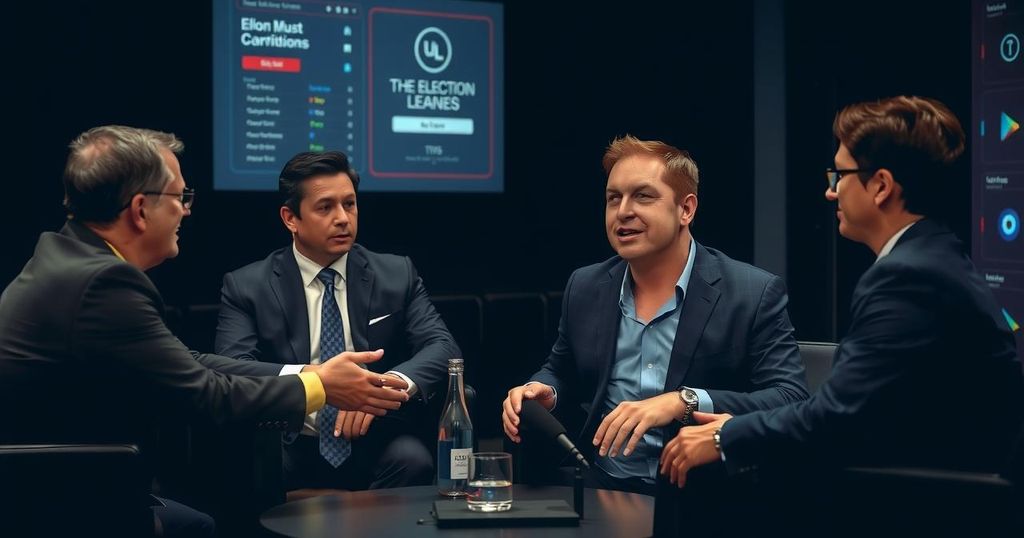Election Officials Challenge Elon Musk’s Misinformation on X

Election officials face significant challenges responding to misinformation posted by Elon Musk on X, where his considerable following amplifies misleading narratives regarding election integrity. Despite diligent efforts to correct these inaccuracies, the officials’ messages often receive far less engagement than Musk’s posts, creating a distracting burden on their responsibilities. Experts highlight the corrosive impact of such misinformation on democracy. Therefore, effective countermeasures are essential to preserve the integrity of electoral processes.
Election officials have increasingly confronted misinformation disseminated by Elon Musk on his platform X, formerly known as Twitter, where he boasts a massive following of over 200 million users. A recent incident involved Mark Coakley, the registrar of Henrico County in Virginia, who reacted to Musk reposting a false claim regarding fraudulent votes from the 2020 election in Henrico County. Despite Musk’s tweet receiving 27.7 million views, Coakley’s corrective response attracted fewer than 100,000 views, exemplifying the challenge faced by officials in countering such widespread misinformation. In a similar scenario in Philadelphia, Commissioner Seth Bluestein’s rebuttal to Musk’s misleading assertion regarding voter registrations was viewed by less than 10,000 users, starkly contrasting with Musk’s near 10 million views. The situation is not isolated; Republican officials, like Stephen Richer from Maricopa County, have attempted to engage Musk to provide accurate information, to little avail. Experts highlight the detrimental impact of Musk’s actions on the election process. Sam Woolley, a disinformation researcher, noted Musk’s use of X as a platform to amplify his support for Trump while undermining the electoral system. The incessant need for election officials to address this misinformation diverts their focus from critical election duties, creating significant operational distractions. Notably, Michigan Secretary of State Jocelyn Benson successfully countered Musk’s claim regarding registered voters, garnering more views than Musk’s original tweet, indicating the potential for effective truth-telling.
The increasing prevalence of misinformation during electoral processes has prompted significant concern among election officials and researchers. Platforms like X, where misinformation can spread rapidly, make it challenging for officials to maintain accurate narratives and public trust. Elon Musk’s ownership and active engagement on X have transformed it into a platform where his messages often overshadow factual corrections made by election officials. This power dynamic raises questions about the implications of misinformation on democracy and the integrity of electoral processes, as officials struggle to combat false narratives while fulfilling their role in ensuring fair elections.
The ongoing challenges faced by election officials in combating misinformation spread by influential figures like Elon Musk reveal critical vulnerabilities within the electoral process. The disparity in engagement between misleading claims and accurate rebuttals underscores the urgent need for effective strategies to address misinformation without detracting from the important work of ensuring election integrity. As demonstrated by Jocelyn Benson in Michigan, it is possible to successfully counter false claims, yet the broader implications of Musk’s influence require an ongoing commitment to fostering accurate discourse in the digital space.
Original Source: abcnews.go.com






